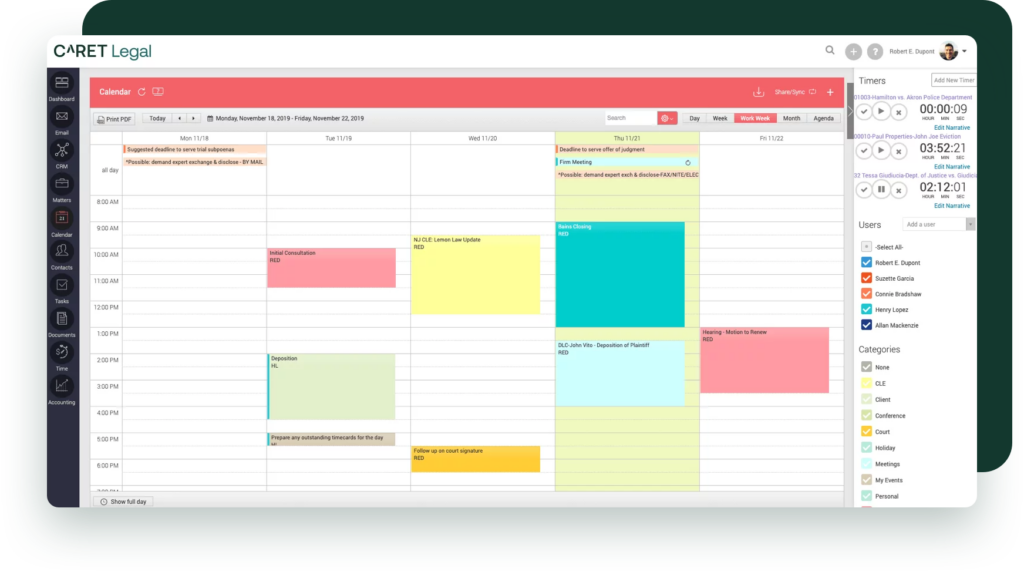The right tools can transform how family law attorneys manage their daily responsibilities, reducing burnout and promoting a healthier work-life balance.
Family law attorneys handle emotionally charged cases and heavy caseloads, often leading to burnout and stress. By leveraging legal practice management software with features that include time management systems and client communication platforms, attorneys can reduce repetitive tasks, streamline workflows, and create a healthier work-life balance – ultimately enhancing both their well-being and client service.
Understanding Burnout in Family Law Practice
Family law practice is challenging by nature. Family law attorneys face unique pressures, from handling high-conflict cases to managing emotionally intensive client interactions. The high-stakes nature of family law, coupled with the constant need for empathy, patience, and resilience, can easily lead to burnout if not managed proactively. Prolonged burnout affects both personal well-being and client outcomes, as attorneys find themselves less able to manage stress or maintain work-life balance.
Time Management and Case Organization Tools
Recognizing the signs of burnout early on is essential, as is implementing tools that can help attorneys avoid reaching this point altogether. By using time-tracking tools to create a structured approach to their schedules, attorneys can minimize overtime and avoid the stress associated with falling behind casework.
Legal practice management (LPM) platforms also offer organizational tools that allow attorneys to manage their complex workload more efficiently. Tools that integrate calendaring with task reminders make it easier to stay organized, even in the busiest periods, giving attorneys the control they need to balance client needs with personal well-being. Automated billing systems eliminate the need for manual entry, while task prioritization features help attorneys focus on high-impact work without last-minute rushes.
Streamlining Calendar Management with workflows
Calendaring tools in LPM software go beyond simple date tracking. Attorneys can color-code events by priority, share schedules across the firm for better collaboration, and even integrate court-specific deadlines for precision. These tools also allow recurring events and appointments to be set, ensuring consistent follow-ups for long-term cases.
When paired with automated workflows, calendaring becomes even more powerful. Every calendar event can trigger automated steps, such as document preparation reminders, task delegation, or client communication updates. For example, scheduling a deposition automatically generates a checklist of associated tasks, like filing motions or confirming witness availability, ensuring that no critical detail is missed.

Communication and Client Management Tools
Constant communication with clients can be one of the most draining aspects of family law practice. Centralized client portals and client texting capabilities enable attorneys to keep clients informed while setting boundaries on when and how they are contacted. With a client portal, clients can share documents and pay their invoices, which minimizes excessive emails and phone calls. Integrated two-way texting allows attorneys to effortlessly communicate with their clients, saving any communications directly within their legal practice management system.
The Right Tools Can Transform Your Firm
The right tools can transform how family law attorneys manage their daily responsibilities, reducing burnout and promoting a healthier work-life balance. Through time management, automated workflows, and streamlined communication, LPM platforms provide attorneys with practical ways to handle day-to-day challenges. Embracing these solutions not only enhances the quality of life for attorneys but also leads to more effective and compassionate client service.
Schedule a free demo today to see how legal practice management can help your family law practice succeed and avoid burnout.
